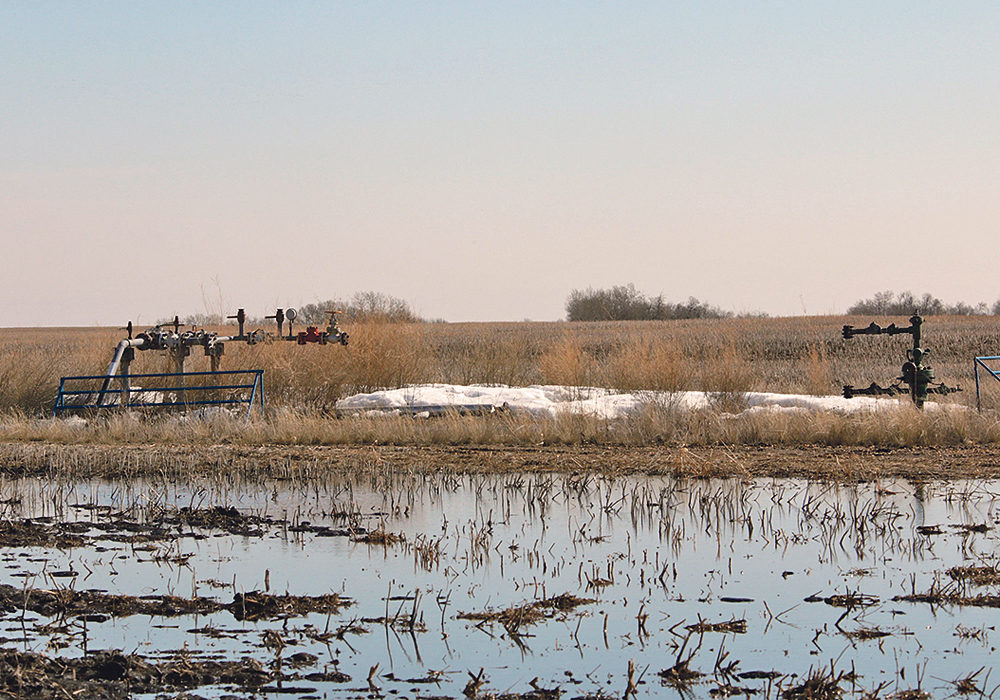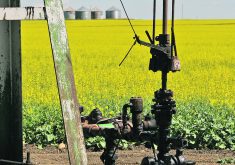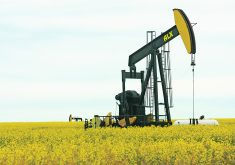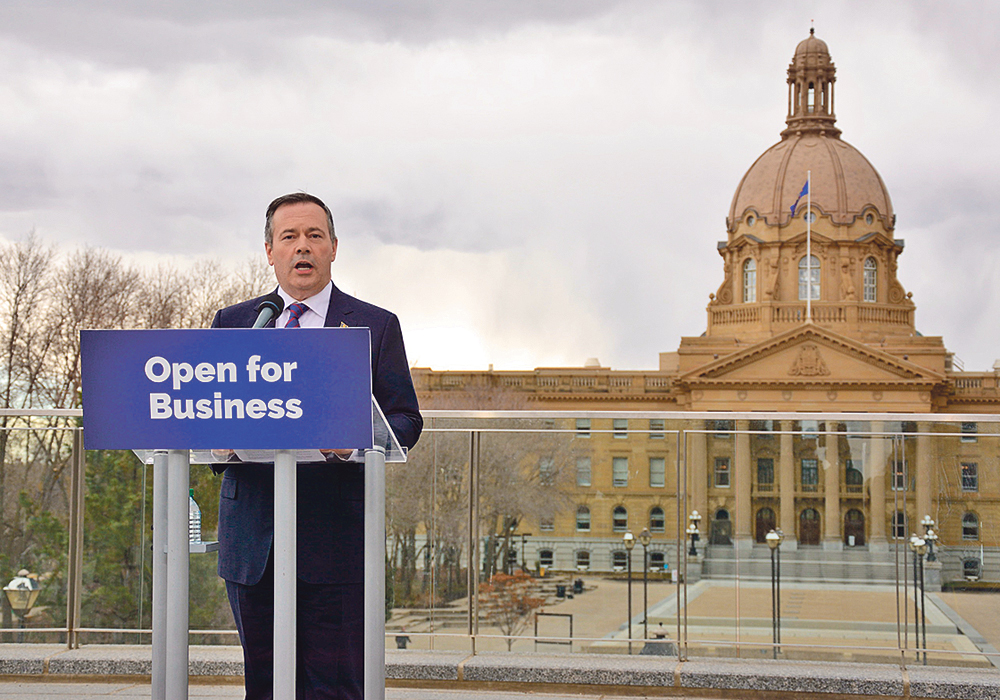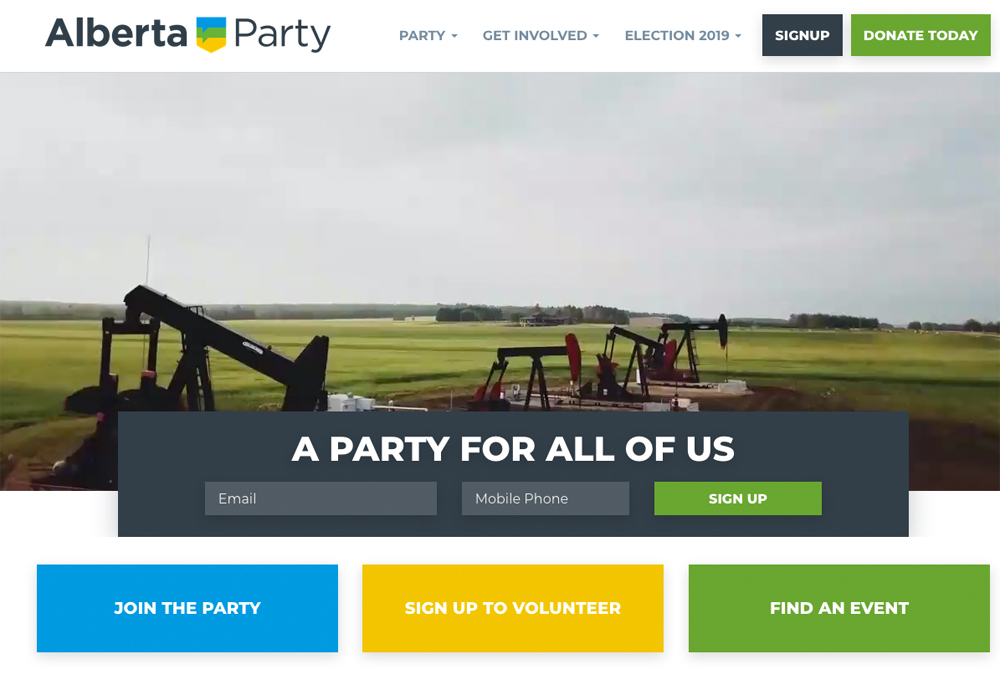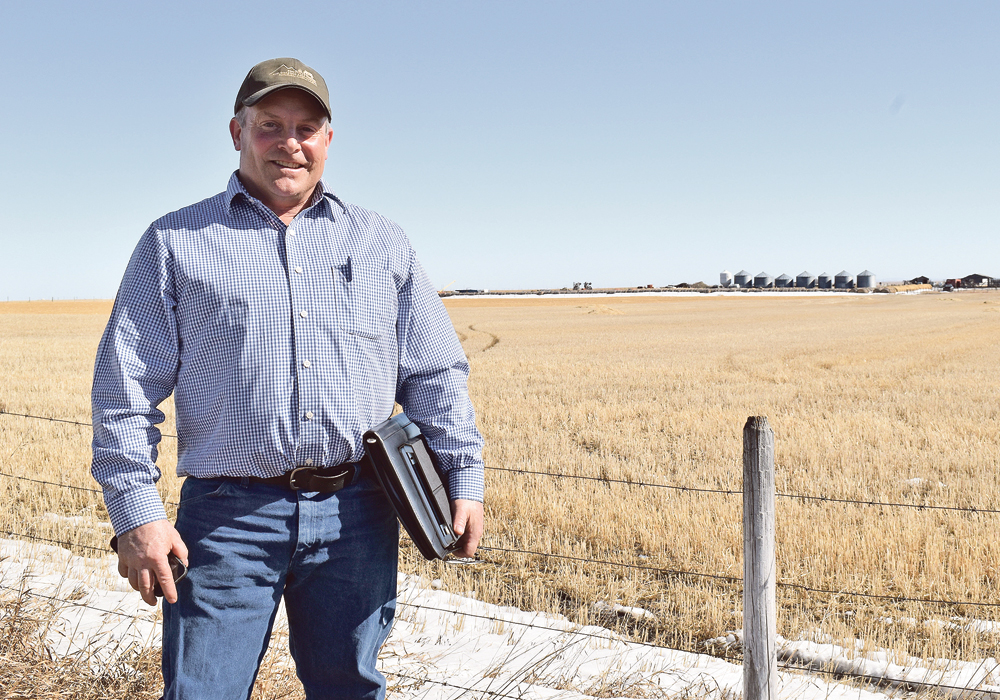Political parties spend little time during the election campaign talking about how to deal with growing problem
BAWLF, Alta. — Bill Leithead stops beside an abandoned oil well site near his home in Camrose County, lamenting the problems the industry has caused for farmers over the past few years.
The site is on land owned by his neighbours, Larry and Linda Nikiforuk, who happened to drive by as Leithead discussed the challenges.
“They need to put some regulations on these guys so they don’t walk away,” Linda said through the window of her truck.
“That thing sits there and you have to farm around it. You’re overlapping, spending extra on seed and fertilizer. It makes a heck of a difference.”
Read Also

Farming Smarter receives financial boost from Alberta government for potato research
Farming Smarter near Lethbridge got a boost to its research equipment, thanks to the Alberta government’s increase in funding for research associations.
The issue of abandoned oil and gas wells has been growing ever since the industry took a drastic fall in 2014, but has hardly been discussed by leaders during the provincial election campaign.
Many landowners want action to address the problem now, but some farmers like Leithead are wary that change will ever come.
“It doesn’t matter if it’s the UCP or NDP in power, they are gun shy of the oil industry,” he said. “That’s the problem.”
Leithead took it upon himself to clean up two abandoned sites on his property.
He said the company didn’t pay him for reclamation, but he had to clean it so he could farm properly.
“I had to do it so we could put the crop in,” he said. “It’s frustrating we had to clean up someone else’s mess, but we had to move on.”
According to the province, about 167,000 of Alberta’s wells are inactive or abandoned, making up roughly half of the entire inventory.
In Camrose County, it’s a big problem because many of the sites are old and no longer producing.
“Some companies have gone belly-up, leaving us with taxes owed,” said Don Gregorwich, reeve of the county. “We’ve had companies that expanded, not paying taxes and then went into default.”
If elected, the NDP promises to implement clear clean-up timelines, requiring companies to justify why there are delays in reclamation.
The party would also create what it calls corporate health measures on asset sales, which aims to prevent liability dumping.
United Conservative Party leader Jason Kenney has said he would create a framework to reclaim abandoned wells, but hasn’t set clean-up timelines.
On the flip side, Kenney wants to rapidly approve new wells, legislating benchmarks for approval times.
“Our ultimate goal is to meet or beat every jurisdiction in the speed of approvals to get jobs back in our province,” Kenney said while standing in front of a pumpjack in Turner Valley, Alta., April 2.
What many farmers want, however, is more regulation on oil and gas companies that access their land.
Ron Huvenaars, chair of the Action Surface Rights group, said whoever gets elected needs to push the Alberta Energy Regulator (AER) on enforcing the rules.
He said more due diligence is needed to ensure companies are financially healthy to take care of wells, noting some go bankrupt shortly after they acquire more sites.
In power, the NDP government implemented rules to flag bad-behaving oil producers, not granting licences to people who were key players in companies that had a history of going bankrupt and abandoning sites.
But Huvenaars believes more needs to be done, saying the AER has a history of signing off on reclamation certificates without the farmer’s knowledge. Companies can stop paying landowners when the certificates are signed.
The industry also largely polices itself, which he says can be problematic.
“Some companies are fine at inspecting sites, but some aren’t,” Huvenaars said. “We need to hire more inspectors rather than self-inspection.”
Back in Camrose County, Leithead points out legislation passed by the former Ralph Klein government allowed much of the oil industry to regulate itself.
“It was like having the fox guarding the henhouse,” he said.
“When we saw this problem coming, some of us voiced our concerns, but we weren’t the majority and we don’t have deep enough pockets to make significant political contributions.”
Going forward, he would like more regulation, but he’s skeptical change will happen.
“There should be none of this business of walking away from stuff,” he said. “If we don’t pay taxes, the county can put a lean on us. The oil companies are immune to that.”
The recent Redwater decision by the Supreme Court of Canada has some landowners feeling optimistic.
The decision indicated polluters must first clean up before paying creditors, ruling bankruptcy is not licence for companies to ignore reclamation.
“The decision makes it possibly more difficult for some companies to get started,” Huvenaars said, explaining companies will have to show creditors they are low risk.
“Before, the bank could have pushed them into receivership, knowing they were first on the list to get all the money. Whereas now, the environment has be done first before the bank gets their money.”




